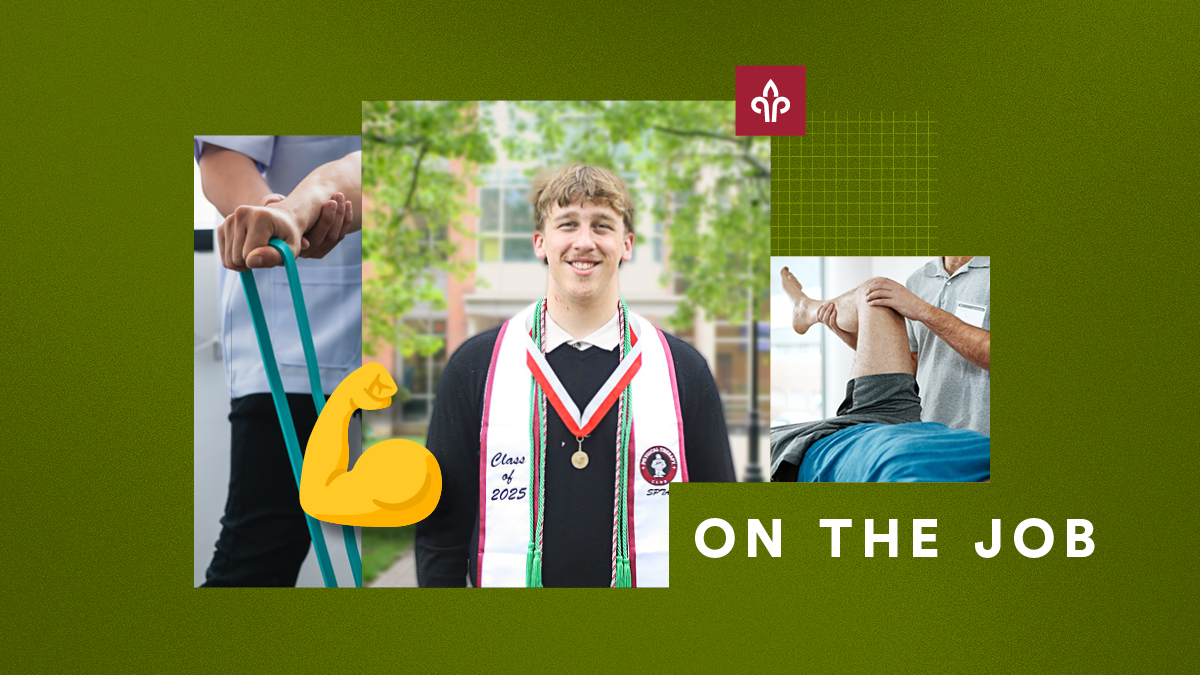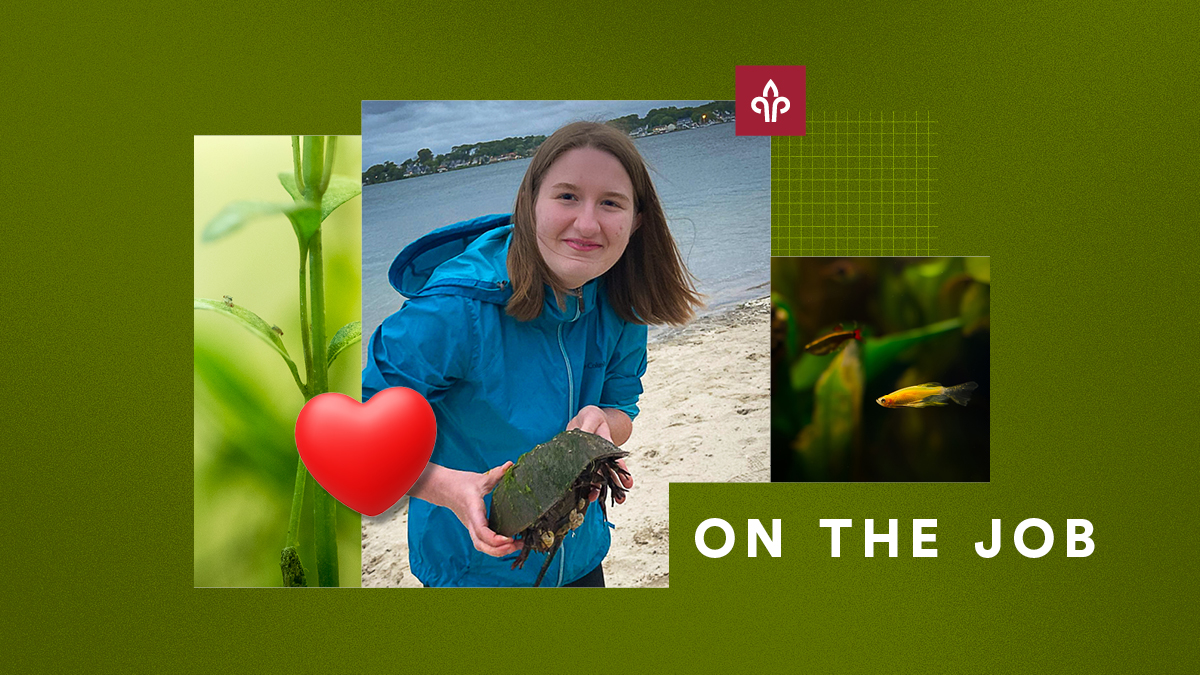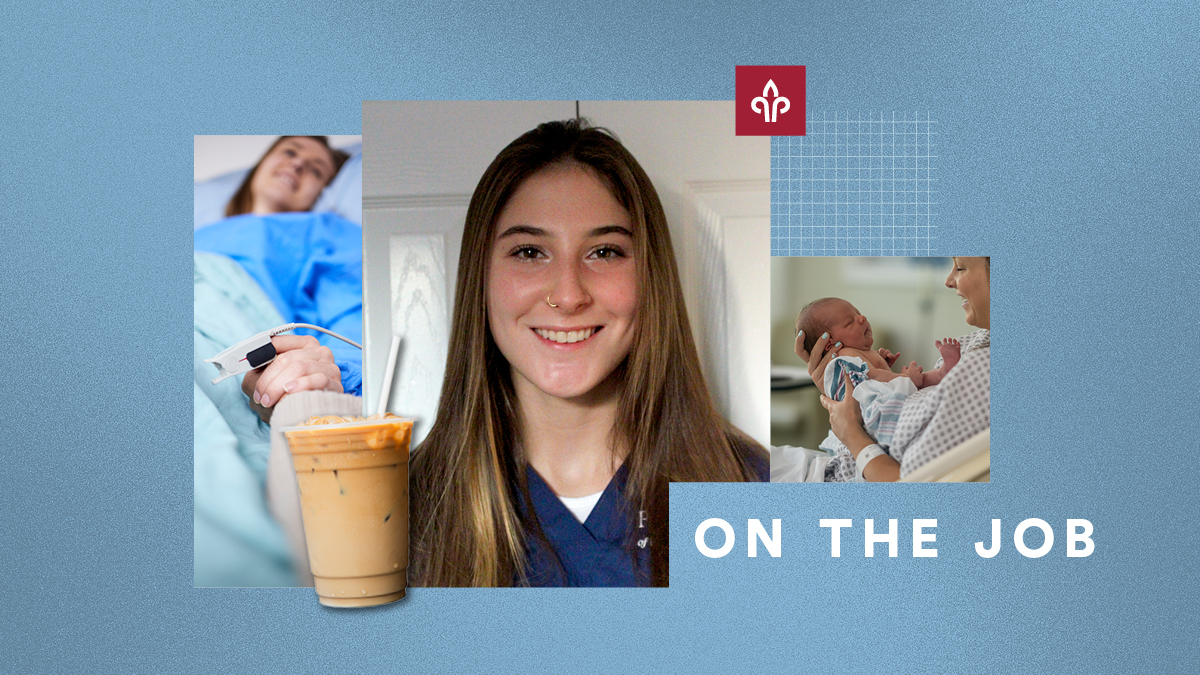A Global Perspective on Healing
Saint Joseph’s student pharmacists traveled to China for the first time this summer to learn about traditional medical practices.
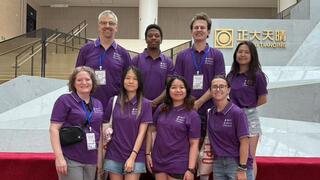
A group of Saint Joseph’s University student pharmacists traveled to China this summer to learn about traditional eastern medicine practices alongside students from around the world.
Students on the inaugural trip spent two weeks at China Pharmaceutical University (CPU) taking part in classroom and experiential learning, focusing on everything from herbal remedies to acupuncture.
Catherine Lu, PharmD ’27, wanted to take the trip to expand her pharmaceutical knowledge, prepare for opportunities in patient advocacy and connect with her Chinese heritage.
“Everywhere across the world, people are trying to advance the field of pharmaceuticals,” Lu says. “Through these lectures, I gained an understanding of how much more pharmacy can be and how we could do more efficient research to make more beneficial drugs.”
Lu was particularly interested in the lectures on herbal medicine.
“I have a little background in eastern herbs, but I wasn’t knowledgeable on their usage before these classes,” she says. “The lectures really helped me understand that a lot of these herbs don’t have just one use; they help the entire body.”
According to Julie J. Yu, PhD, assistant provost of China programs, experience with eastern medicine gives students both a deeper understanding of the medical world and a competitive edge in the workplace.
“The number of people looking for natural remediation is on the rise in the United States, and when students can understand that part of medicine, it opens their door to an entirely new world,” Yu says. “Chinese pharmaceutical practices are rooted in thousands of years of history, and it opens their minds as well as future career paths because not many doctors and pharmacists in the United States have that skill.”
Yu accompanied students on the trip along with Edward F. Foote, PharmD, FCCP, dean of the Philadelphia College of Pharmacy (PCP), and Laura E. Waite, PharmD, BCPS, CLS, associate dean of student affairs and admissions at the School of Health Professions.
Thanks to a partnership with the Nealis Program in Asian Studies, an interdisciplinary SJU program helping students explore Asian culture and language, the small group of students and faculty were able to spend an additional week on the trip touring sites like the Great Wall of China and the Forbidden City.
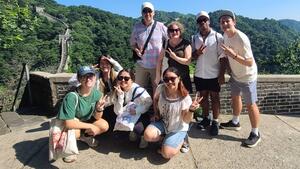
“It was great to be able to stay those extra five days and connect with the students, and we’re grateful to the Nealis Program for that chance,” Foote says. “Spending that time with students was really special.”
The chance to explore the country and be immersed in the culture was an unexpected highlight for Lu.
“I went on the trip fully expecting myself to hone in on the lectures, but it was the connection with the people that really made the experience for me,” Lu says. “Getting to know everyone from universities in Korea, Vietnam, Egypt and more, and seeing how we all share the same goal and learned something new together was really cool.”
For PCP faculty, this trip is one of the many ways that SJU students stand out as global leaders.
“This trip reflects St. Joe's growing commitment and role in international education, and global engagement programs like this set St. Joe's apart by preparing future leaders with meaningful international experience,” Yu says. “This is the result of years of dedicated relationship-building and strategic engagement with Chinese academic partners, and it represents a significant milestone in our long-term efforts to build bridges between Saint Joseph’s and top institutions abroad.”
According to Foote, the development of these cross-cultural skills is just as important as the knowledge gained in the classroom.
“Students gaining this global perspective makes them better not only in the healthcare field, but in the world in general,” Foote says. “Learning about other cultures is incredibly important, and I’m so proud of the engagement and leadership of our students.”

